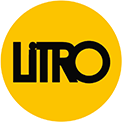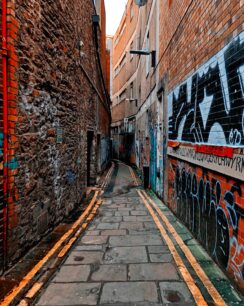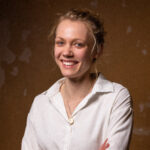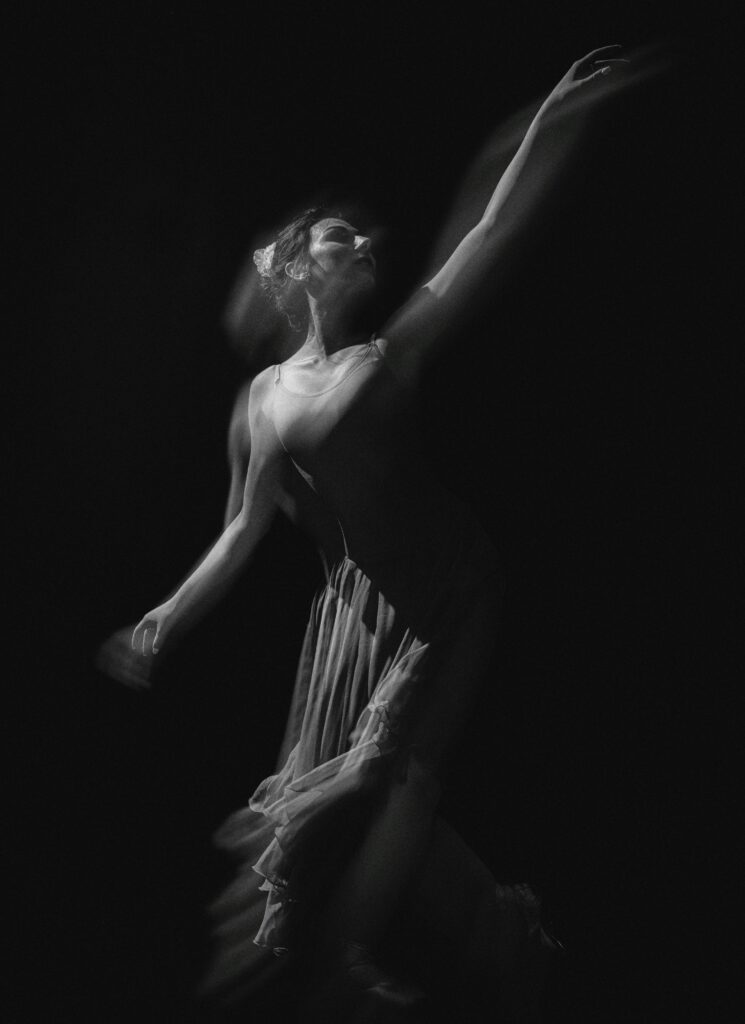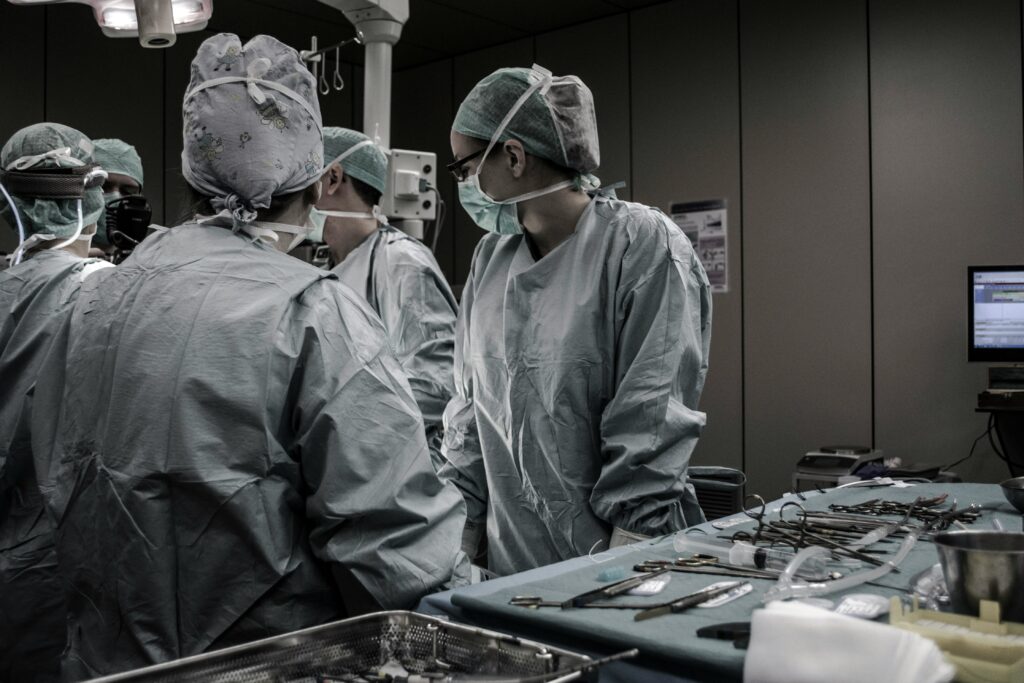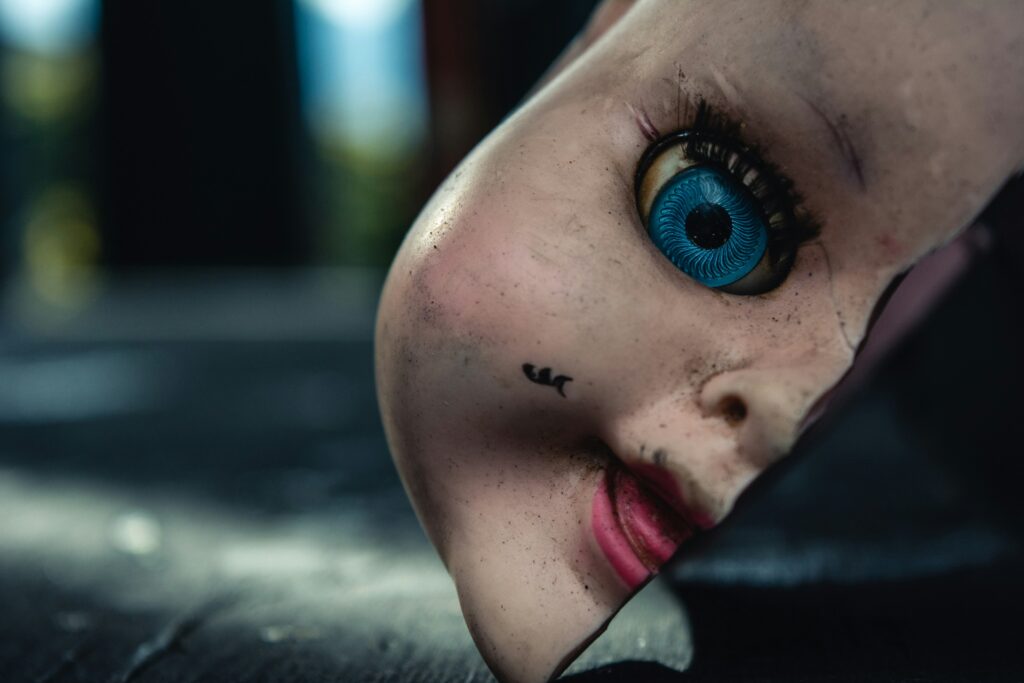68 Sydenham Road
Scarlett Sangster, September 20, 2023
1.
68 SYDENHAM ROAD was exactly what Eleanor had expected from a house in Bristol, even if the company was not.
“I live alone during the week, but I’ll need you out at weekends,” said Vivian as she showed Eleanor around. “You can leave your things in the room, I just need my privacy.”
The house was far too big for one person, a classic Victorian terrace with a metal gate and oversized door, deep staircases and high textured ceilings. The furniture was an odd fusion of regency and Asian influence, and the walls were stripped bare, their dusty surfaces decorated instead with a mismatch of artwork: a soft pencil-sketch of a hare, an oriental lilac tapestry, an abstract oil painting that resembled both a forest and a city depending on which way you looked at it, and a stuffed deer head with a dried rose balanced behind its left antler.
“I like to play with different mediums,” Vivian said, briefly stopping at each room for Eleanor to peer inside. “Pottery is my first love, but I’m currently commissioned to make a series of bespoke coffin covers. Biodegradable, of course.”
Eleanor was renting one of the two bedrooms on the top-most floor, Monday to Friday only as per the ad, and would share the bathroom, mini-fridge, kettle and microwave with whoever moved into the room beside her. “Another girl,” Vivian had assured her. “I only trust girls.”
It was not the ideal living situation, and far flung from the one Eleanor had imagined as her first place away from home. But as she tucked herself in that first night, turning the lights out on the garish crimson tapestry opposite her bed, she felt a quiet sense of certainty that was the place she would one day attribute her earliest artistic accomplishments – the expedient womb of England’s so called city of art.
*
The next day, Eleanor left the house at 6am. She hated the walk to work, especially in the winter darkness. The streets of Bristol she’d been promised, the ones alive with music, art and culture, were filled only with pigeons, beer bottles and sleeping bags before the sun came up. Straight out of college, Eleanor was starting as an apprentice at an advertising agency that worked only for good clients: hospitals, charities and waste disposal franchises. She wanted to be a graphic designer, but after two weeks of answering phones and collecting post, Eleanor still hadn’t gathered the courage to share her sketches with her colleagues.
“Pottery is my first love, but I’m currently commissioned to make a series of bespoke coffin covers.”
*
It was the Tuesday of her third week when Eleanor came home to find the top floor landing blocked off by boxes. There was music playing; mellow synth-wave with words that were spoken rather than sung, and a broad, rounded sort of voice was attempting to rap along.
“Hello?” Eleanor called over the boxes. An impish face appeared from behind them, framed by straggly brown hair and those round tortoise glasses people tended to wear ironically.
The girl stuck her hand out in greeting. “Rue,” she said, before heaving the boxes aside. “You’re Eleanor, right? Wow. You really don’t fit in here, do you?” Rue grinned, cocking her head like a jack russell and Eleanor felt her cheeks grow hot. “Think I’ll call you Nor,” Rue said. “The world’s all about abbreviations these days.”
Eleanor wasn’t sure what she meant by this, but Rue had already turned to examine the microwave.
“It’s not even one of those fancy grill ones,” she said in a voice of mock-horror. “What have you been eating?”
Eleanor shrugged. “Spaghetti hoops, mainly. And Tesco ready-meals.”
Rue scrunched up her nose. “Gross, we can’t live off that. We’ll have to get creative.”
2.
Eleanor and Rue soon settled into a cosy routine, their Sunday evenings to Friday mornings operating in what felt like complete isolation from any outside reality. Their top-floor annex gave them both everything and nothing of what they needed. A space to call their own, but only five nights a week. A bath that kept the water warm only long enough for one of them to bathe at a time. Heating that operated at full blast in the mornings but was unable to thaw out the floorboards at night. And the microwave, which seemed to demand more creativity from them than either of their artistic endeavours. Dry pasta, they soon realised, could not be cooked in a microwave no matter how long you left it soaking, but fresh tortellini came out just fine with a little water in the bowl. Stir fry also turned out to be an easy dinner – they even mastered egg fried rice, cracking eggs into Uncle Ben’s. There was the night they microwaved fish and had to live with the smell for a week after, and the discovery of mug cakes which would be made nightly for the next month. Risotto of varying forms was the general favourite, though soggy chips with melted cheese was always acceptable for a low-maintenance supper.
“We should write a cookbook,” Rue joked one evening as they tucked into a particularly successful ham and mushroom rice dish. “I’ll write, you illustrate.”
Rue was serious about this too – at least, as serious as Rue was about any of her business ideas. She even made it most of the way through a first draft before the book disappeared under her bed, along with the poetry magazine, the sitcom and the route for her travelling theatre. These were the nights they spent playing the board games stored on the shelves outside their bedrooms, and watching Vivians’s old movies on Rue’s laptop. Rue would practise her stand-up comedy on Eleanor, and Eleanor would tentatively run through her latest sketches for Rue’s critique (of which she was always generous). These were the nights when full or hungry, they would fall asleep in the same bed, curled around each other like school girls at a sleepover.
But then, of course, there were also evenings when Rue didn’t get in until long after dark. When she had to stay for guest recordings, or some producer had asked her out for a drink so she could explain how she might make the station more captivating for a young audience. Eleanor was never sure what exactly Rue did at the radio station (it was difficult keeping her on topic long enough for any serious line of questioning), but still she envied how easily Rue seemed to navigate through this city of invisible barriers, influencing those around her, demanding to be accepted. On those evenings, Eleanor would, instead of watching old movies, give herself pep-talks as she made dinner, bargaining with herself while piercing jacket potatoes, that the next day would be the day she took her sketchbook out from under her desk.
3.
Vivian finished her coffin covers in May.
“They’re inspired by el Día de los Muertos,” she said, reverently leading the girls around each one, pointing out the details she’d found hardest to capture.
“Are the dead people Hispanic?” Rue whispered as Vivian described the process of creating the mottled dye effect around the edges of the third cover.
“I don’t think they’re even dead yet,” Eleanor replied under her breath, sending Rue into silent hysterics.
“I’ll be back early Saturday morning,” said Vivian once the girls had helped her roll and vacuum-pack the heavy cloths, ready for transporting to their commissioners up in Derby. “Help yourselves to what’s left in the fridge, I hate waste.”
*
“Did you see that look she gave me?” said Rue, as they huddled by the living room window to watch Vivian out the gate. “I swear she doesn’t like me.”
“What makes you say that?” said Eleanor, surprised.
“I just have that effect on some people,” said Rue, letting the curtain fall back into place.
For an hour or so, the girls wandered from room to room, satisfying their morbid curiosity, picking up trinkets and opening cupboards, flipping through photo albums and rummaging through bed-side drawers.
“She has a wine cellar!” Rue shouted up the stairs.
This wasn’t strictly true, though there was a walk-in pantry with a wall of dusty bottles; all corked, mostly organic.
“Let’s open one,” said Rue, already dusting off a bottle of red.
“She’ll notice,” said Eleanor, twisting her fingers.
Rue rolled her eyes. “We can replace them. We’ll just get something cheap and dust it a little. It’s not like she drinks them.”
Eleanor watched Rue select a bottle from the bottom row and blow the dust from the label. “Merlot, 1979. Sounds sophisticated, eh?”
Her eyes at last made sense of the abstract colours and harsh clash of strokes painted across walks and doorways, oil instead of watercolour.
Vivian’s kitchen was as eccentric and mismatched as the rest of the house: pots and ladles hung from rusted nails over a large gas stove, the spice rack overflowing with asafoetida, shichimi togarashi, zaatar and sumac. Bottles of oils collected on the counter, and a basket of obscure root vegetables, chard and broad beans was stored on the flagstone floor. A seeded loaf of homemade bread had been left to go hard on the side and the girls sliced off chunks to soak up the wine, dipping their crusts into a blend of oils.
Every night that week they raced each other home, picked out a new bottle of wine and got to inventing a meal – dinners of cake-like tempeh marinated in spices and served with unknown grains that refused to cook beyond al dente. Some of the meals were a success, and others were inedible, but it wasn’t about the flavour, it was about the game – adulting.
It was a warm Spring, and after eating they took their wine out into the overgrown garden to sit on the patio, Rue chain smoking tainted roll-ups while they speculated on all the new evidence they’d curated about Vivian’s life: her studies in Singapore, followed by a period in the Philippines and a spate in Taiwan (possibly not in that order); the son who wrote her letters about his life in Hong Kong, how he and his boyfriend wouldn’t be able to make it over in the summer after all (work was mad), but how they hoped she’d fly out over Christmas. There was no evidence of a husband or partner.
“What does she do with the house every weekend by herself?” Rue would wonder aloud as they poured out the last, grainy dregs of wine. “Sex parties disguised as life drawing? Spiritualist dances? Maybe she’s fucking Banksy? I’ve half a mind to camp out here one time to find out.”
4.
Eleanor’s apprenticeship had been extended once already, so when Aaron, the creative director, asked her to stay behind, she was wholly expecting a goodbye. She began crunching the numbers in the back of her mind as she watched the rest of the designers power down their stations, set aside their pencils and slip their arms into waterproof jackets. How long could she stay at Vivian’s with what she’d saved? Where else in the city might take her on with such a limited portfolio? And what would she do if no-one had openings? She couldn’t bear the thought of moving back home full-time – the looks of, I told you so, on her parent’s faces.
She sat across from Aaron with her sketchbook in her lap. She must, at the very least, walk away with a reference. So convinced was she, that this was the end, that it took Aaron three times of asking before she let herself accept his offer.
“A junior designer?” Rue scoffed, without looking up from her magazine. “What a condescending job title. What have you been these last 6-months if not junior?”
But Eleanor was too elated to care for Rue’s mood. For the first time in her life she’d be getting a proper salary, and a desk with a Mac of her own and training in how to turn her sketches into something real. Something that might appear on websites and billboards, adverts and social media. “I want to celebrate,” she said.
And so, though it was only a Wednesday, the girls got dressed up; Rue in fur and a beret, and Eleanor in a cream shift dress with three-quarter length sleeves and sweetheart neckline she’d not yet had an occasion to wear. Locked at the elbows, they zig-zagged down the hill to Gloucester Road. The place usually made her nervous, but that evening Eleanor felt she was seeing the street filtered through a different lens – her eyes at last making sense of the abstract colours and harsh clash of strokes painted across walks and doorways, oil instead of watercolours – falling in love with expressionism in its truest form. They shrieked as they strutted down the road, suddenly the sort of girls that newcomers to the city might step off the pavement for. But they were no longer newcomers, they were artists, influencers, creators, poised finally to make their mark. They sidestepped into Hamilton House, and left into The Canteen with its long bar and graffitied tables. The band was just setting up (electro swing tonight, the pierced barman told them), and by 8 the room was beginning to throng. Two pints each, they double parked themselves on a table at the front, bright faces illuminated by the stage spotlights. A bottle of wine. And then another. A wink from the drummer. Conversations with strangers – a stylist, a dancer, the man with the goatee and holes in his earlobes, the one-handed jeweller, the activist handing out shots with her pamphlets – alone together, claiming seats at anonymous tables.
5.
It was coming up to Christmas when Vivian suggested the meal. “You’ve been here almost a year and we’ve never had a sit down meal,” she said, as though to imply the girls were purposefully avoiding her. There’s a new pop-up in The Bear Pit. Laotian cuisine,” she said with a flourish. “It’s like a Thai-Vietnamese fusion.”
Though Eleanor wasn’t sure she’d be able to tell the difference between Thai and Vietnamese, she agreed and they settled for a Wednesday when she knew Rue, who was now working at a comedy club in Bath two nights a week, was most likely to get home on time.
“Great,” said Vivian. “I’ll book for 7.30.”
*
The restaurant sign was temporary. Handwritten in black and green Sharpy on a sample of wallpaper. Eleanor arrived straight from work and lingered outside. She rubbed her hands together, her breath forming clouds in front of her. She pulled out her phone and typed a message to Rue. Here already, it looks kinda cute. She read it over, then backspaced on cute, replacing it with alternative.
Vivian arrived five minutes later and ushered her into the restaurant. It was small – even smaller than it looked from the outside, with just one long table and benches either side for diners to sit and eat together. The air was close with steam and none of the waiters spoke English, though whatever language they were conversing in, Vivian was apparently fluent. They ordered a bottle of wine and sipped it slowly, making small talk while Eleanor tried not to glance too often at the door. At quarter to nine, Vivian ordered from a complex menu of dishes, none of which were described in English, and Eleanor ordered a selection that she hoped would be enough for two. No idea what I’ve ordered, she texted. But some sort of sustenance is being prepared!! How far off are you? But when the food arrived, Rue still hadn’t shown. The dishes were small tasting plates of colourful vegetables and browned squares of tofu in salty, amber sauces. Vivian tucked in with fervour – musing in detail about a new technique she’d been toying with where she cut pieces of twine, layered them with paint and gently drew them across the page to create wave-like or petal-like patterns – and Eleanor with modesty, conscious of not eating more than her half.
“I wouldn’t worry, you know,” said Vivian as their plates were cleared. “I had a sense when I saw you waiting by yourself, that she might not show.”
Eleanor nodded and tried to laugh it off. But she continued to fret, glancing down over the delivered messages and Rue’s earlier jokes about how ponsy she thought the food might be.
By the time they got back to the house, Eleanor had half convinced herself that Rue would be sat up, haughtily waiting for her with a bottle of vodka in ill-conceived apology, demanding rotten details about what Vivian had said about her. But the sight of Rue’s darkened bedroom sent chills through Eleanor, her pulse thumping quietly in her wrists. She sat on Rue’s floor and rang her mobile on repeat, the monotone rhythm cutting out on the sixth ring – Rue didn’t have voicemail. Eleanor wracked her brain for who else she could call. Another friend Rue had mentioned, a family member or even an employer. But there was no-one. After almost a year of knowing each other, she knew of no-one by name or number who might be able to say where Rue might be. At 3 am, she called round the hospitals. The RUH in Bath, North Bristol and UHB. She scanned the news, refreshing the search page over and over, her mind alive with scenes of crashes and airlifts, of muggings and abductions. Then, at 6am, she called the police.
6.
Eleanor took a call from the station in the work toilets. But they weren’t calling with news, just to ask for extra details. She took a moment to sit with her head on her knees, before returning to her desk, an acrid taste in her mouth.
All day Eleanor struggled to concentrate; the sparrow she was trying to animate looking increasingly lopsided the longer she spent trying to coax it into flight. At exactly 5.30pm, she powered down her Mac and slipped away from the talk of drinks and karaoke in Clifton, mumbling excuses as she moved toward the lift. As soon as she stepped out into the street, she started to run. The air was cold, biting at her ears as she fought to keep her scarf from flying free. She ran down the hill, then cut across behind the hospital. Her feet were hard on the damp pavements. She’d never been athletic in school and the harsh slap of her flat-footed gait was amplified in the empty air around her – an echo chamber, hollow and monochrome.
It was a raw, indignant sort of anger.
The front gate clanged behind her as she cursed at the door and threw herself over the threshold of 68 Sydenham Road. She took the stairs two at a time, blood swelling against her eardrums, until she reached the top landing and clung to the bannister to regain her breath.
She was dizzy. Black dots blotted her vision like an ink splatter. She squeezed her eyes tight, took a couple more long breaths, then pressed a hand against the rough wood of Rue’s bedroom door.
It took Eleanor a moment to register what she was seeing: the stripped bed, the bare rug-less floorboards, the lack of clothes and books strewn across the room, the dark void beneath the bed where Rue had stowed all her forgotten projects and half-cooked plans. Eleanor’s breath expanded in her throat, a thick globule of saliva refusing air to her lungs, to her brain, enough to think clearly, to piece the fragments of what she was seeing into a logical frame. She backed out, as though by reversing she might be able to undo this impossible version of reality, paint over it and start again. It was then that she noticed the white corners of an envelope pushed under her own bedroom door. She bent down. The envelope was blank and unsealed. She turned it over and pulled out a single sheet of A4 paper.
Eleanor only read the letter once, though Rue’s harsh words stuck with her long after, returning in snatched whispers in the hazy, eventide before sleep. When Vivian came up to find her two hours later, Eleanor was still sat in her doorway, Rue’s bitter accusations balled up in her hand. Vivian perched on the top step and placed two oriental cups of nettle tea between them.
“You know,” she said, nodding at the letter. “Whatever Rue says is not necessarily a reflection on you. At least, not in the way you’re taking it.” She picked up the teacup closest to her and took a delicate sip. “I’ve known Rue was bad news for a while – it was clear she wasn’t working, hiding upstairs during the day, then staying out until ungodly hours, smuggling drugs into the house. I even caught her trying to hide up here at weekends, pretending she’d just overslept.” Vivian placed her tea back down and fixed Eleanor with a firm but knowing stare. “Your only failing was your own naivety. You did what you would want her to do if you stopped answering calls. And yes, if it had been you who hadn’t come home there may well have been reason to worry. But you’re easy. Predictable. You follow the rules. It’s a cruel way to learn such a lesson, but most people are not so straightforward.”
“Straightforward?” Eleanor repeated, feeling the word settle inside her chest – clinging to her like a roach.
“Yes, you know. Easy. Gentle. A follower rather than an adversary. It’s the best way for a woman to be.”
That’s what art is. It is a beautifully self-conscious blend of all the values you come to possess.
Eleanor hadn’t expected the lecture to turn against her. She shivered, her hands suddenly cold and she realised she was angry. It was a raw, indignant sort of anger. The kind she hadn’t experienced since childhood. The kind that stems from only your most innate sanctitudes being shattered. She sank back into herself and for a moment her whole world went black, swallowed, consumed – ink seeping across a blank canvas. But once the stains had receded, a new sense of stillness settled. Her pulse evened out and her mind cleared like the tide drawing back over unmarked sands, and she felt that perhaps for the first time, she was experiencing herself honestly.
“Just because I’m quiet,” said Eleanor, her voice low, “doesn’t mean I’m simple.”
“Oh,” said Vivian, a look of alarm passing over her face. “Please, don’t take that personally.” She reached across the landing and placed a cool hand on Eleanor’s ankle. “There’s nothing wrong with it. You’ll live a much harder life trying to be like Rue.”
Eleanor shook her head, unable to put words to the emotions seizing her fingertips. What was it that hurt the most? The indignity of the sentiment? The cruel, candid delivery? Or the awful truth of it? Misinterpreted as an O’Keeffe flower.
“I’m not easy,” Eleanor said, the hair prickling up her arms. “I don’t want easy. I wouldn’t be an artist if I wanted easy. And I am an artist, or I will be, one day. I’ll create something completely unordinary and let it speak for me. I don’t need to wear tortoiseshell glasses or backpack through Asia to be colourful and inspired. I can be somebody without that. I don’t need people to tell me how to be.”
Eleanor’s cheeks were wet. She wiped away the moisture with her sleeve and stared into her tea. Dark flecks of nettle clung around the rim. She twisted the teacup so the liquid lapped up the residue.
Vivian withdrew her hand, placed her teacup in its saucer and readjusted herself on the top step. She sighed. “I was like you once,” she said. “Aspirational, yes. A dreamer, evidently. But also habitually at peace with my own self-deprecation. Addicted to it.”
Eleanor looked up.
“You’re surprised?” Vivian laughed, a different laugh to the one she usually put on around the house – to the one she’d used at dinner only the evening before. “You think me like Rue?”
“Yes,” said Eleanor, sitting forward, her eyes hard and accusative in her resentment. “You’re exactly like Rue. That’s why you hate her so much.”
“No. I’m not” said Vivian, her words suddenly cold as she stared Eleanor down. “I tried to be, once. Let myself believe that being outspoken and unruly was the path to being recognised. That being alternative was synonymous with individuality. But lucky for me, and one day for you, I eventually discovered the opposite to be true.
“And what did I do once I was free? I travelled. Yes, okay. I travelled. But not because I wanted to meet lots of people, or be somehow more cultured. But because I treasured the ability to blend into the background. Any background. A chameleon. To absorb my surroundings and be absorbed by them, and take from each of them what I, and only I wanted. That’s what art is. It is a beautifully self-conscious blend of all the values you come to possess. It is created by you, for you, and only for you. It is both anonymous and completely individual. The likes of Rue would never be able see that. They’ll exhaust themselves trying to be everything and everyone all at once, and then more. A little ahead of the game.” She shook her head. “There is no art in that. That is merely sport.”
“But, you’re still alone,” Eleanor said, so quietly it was almost to herself.
“What makes you think I’m alone?” asked Vivian, a crease forming between curly eyebrows.
“This big house,” said Eleanor. “All to yourself.”
“Ah.” Vivian’s mouth formed a line, and Eleanor feared she must have overstepped. “So, Rue does have some morals.”
Eleanor frowned. “What do you–“
Vivian cut her off with a look. Not a cutting look. It was assessing, weighing Eleanor up – deciding on something. After a moment, she nodded, shifted her position on the top step. “At the weekends, I host gatherings for nude artists.”
“Nude artists?” asked Eleanor. “As in–“
“Every weekend, all weekend. A sort of artist’s convent, if you will. Anonymous, no names, no accessories, just bodies and art.” She sniffed. “Of course, Rue found it quite amusing. Once she got over the shock of walking in on it, that is.”
Eleanor let Vivian’s words rest against her skin. She hadn’t bathed in over 48 hours and her fringe was greasy, parting like curtains and sticking to her temples. She brushed it away from her eyes.
“How about I open us a bottle of wine?” said Vivian, standing up. “I’ve a lovely mature bottle of Merlot downstairs.” She held out a hand. “All the best inspiration starts with a glass of wine.”
You may also like
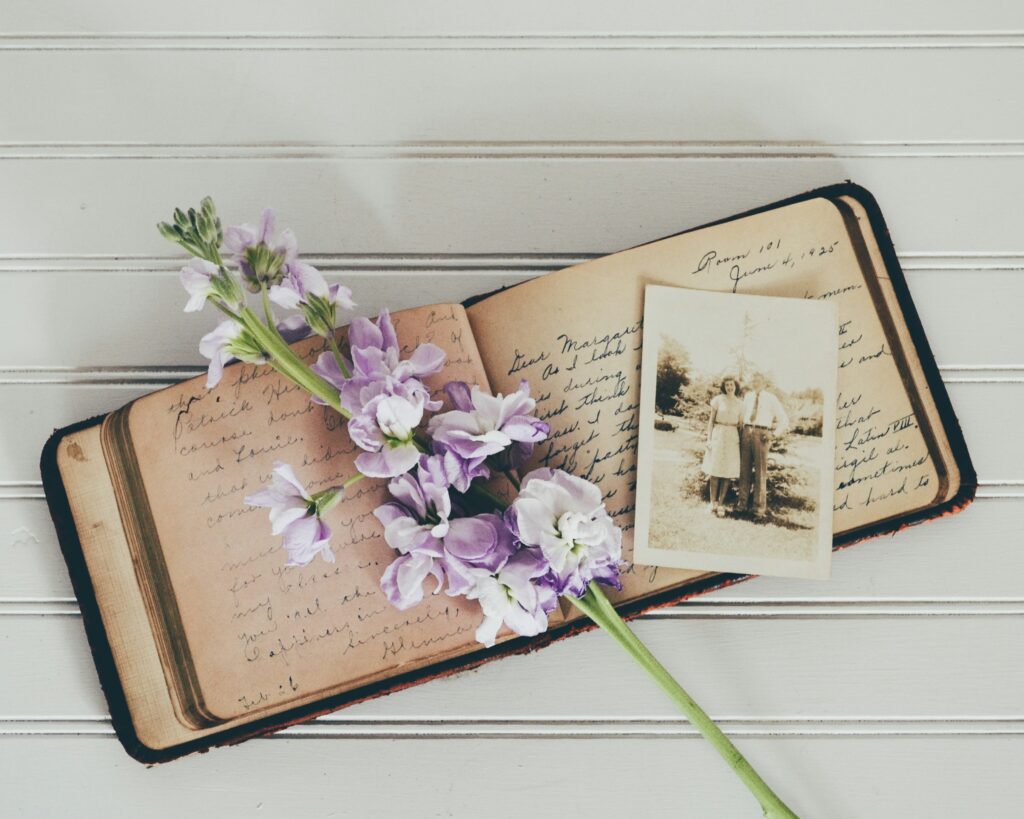
Eyes of the Beholden
Unspoken desires linger in the shadows of a teacher's life, revealed through art
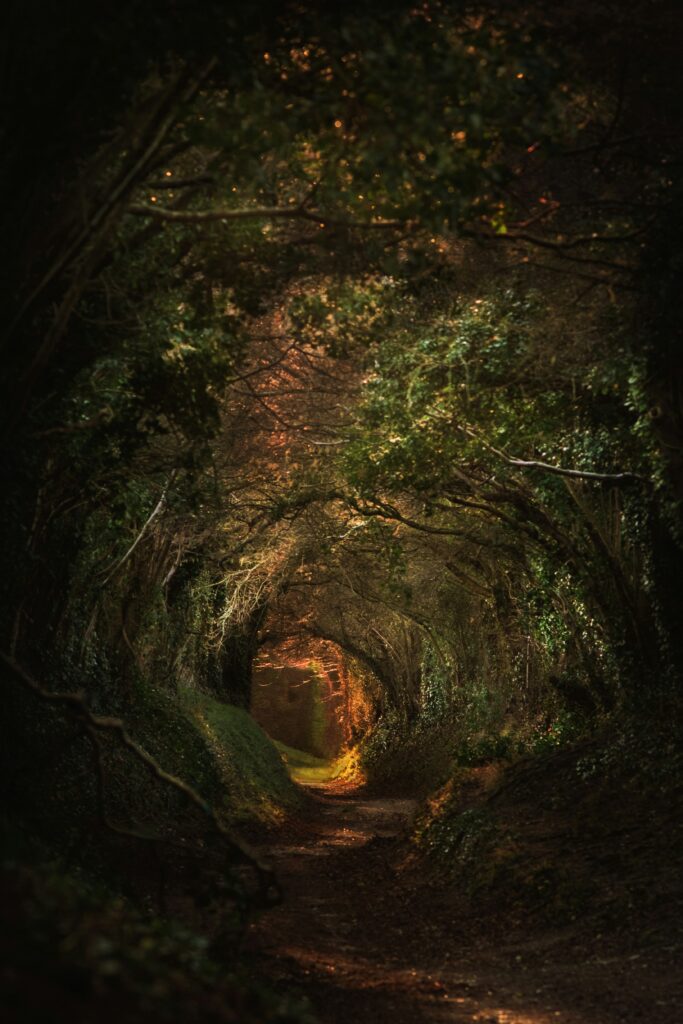
LOST
Bessie's odyssey through stormy nights, lost love, and secret graveyards unfolds with haunting beauty in "Lost" by Sandra Dennis.
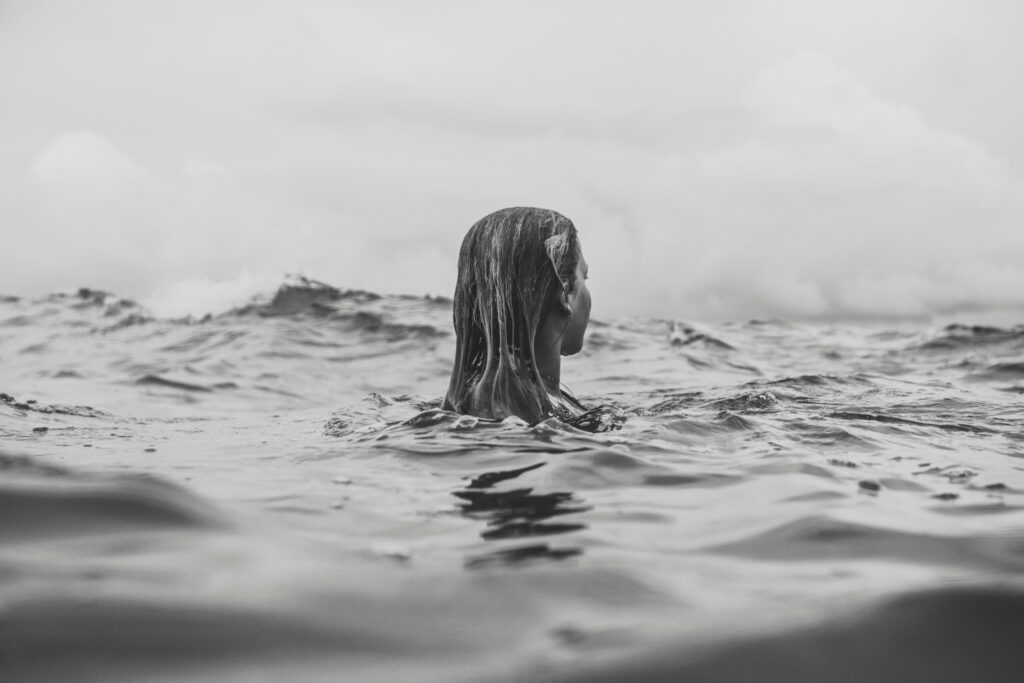
Water Rising
Amidst a flood, a woman grapples with the past, and confronts the consequences in this haunting narrative of resilience.
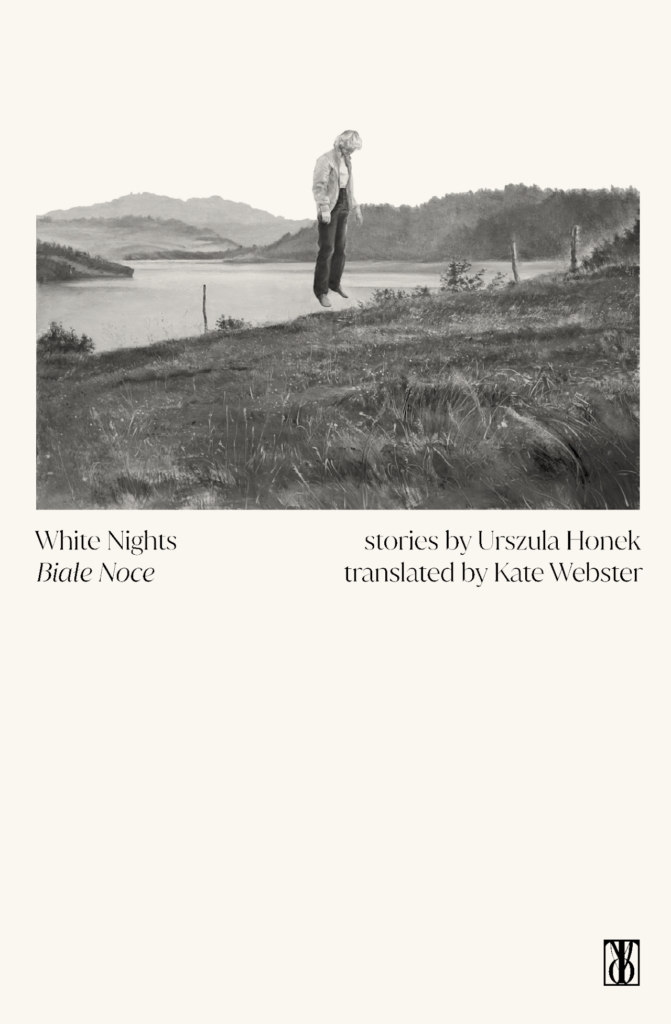
Book Review: White Nights by Urszula Honek
The debut short story from Polish writer Urszula Honek, White Nights, is akin to reading an account of a haunted place – one that is beautiful and devastating in equal
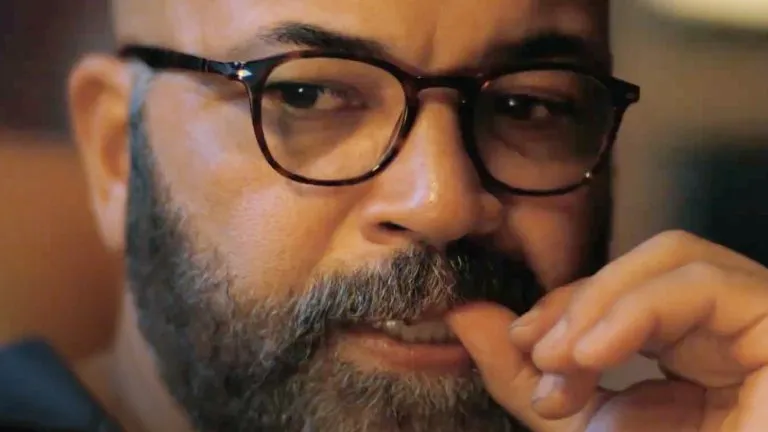
Beyond the Surface: The Multifaceted Lives of ‘American Fiction’
In essence, "American Fiction" and the experiences it draws from remind us that we are indeed more than the sum of our parts.
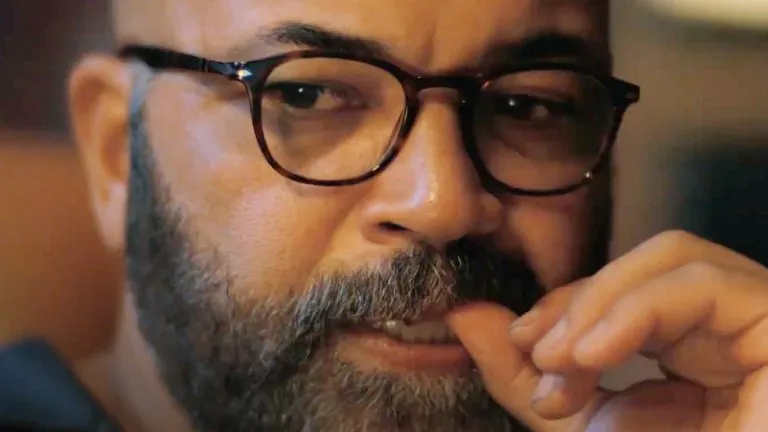
Beyond the Surface: The Multifaceted Lives of ‘American Fiction’
The narrative of “American Fiction” unfolds with a dual focus: it not only scrutinizes the unique pressures faced by Black creatives but also delves into the intricate and sometimes tense…
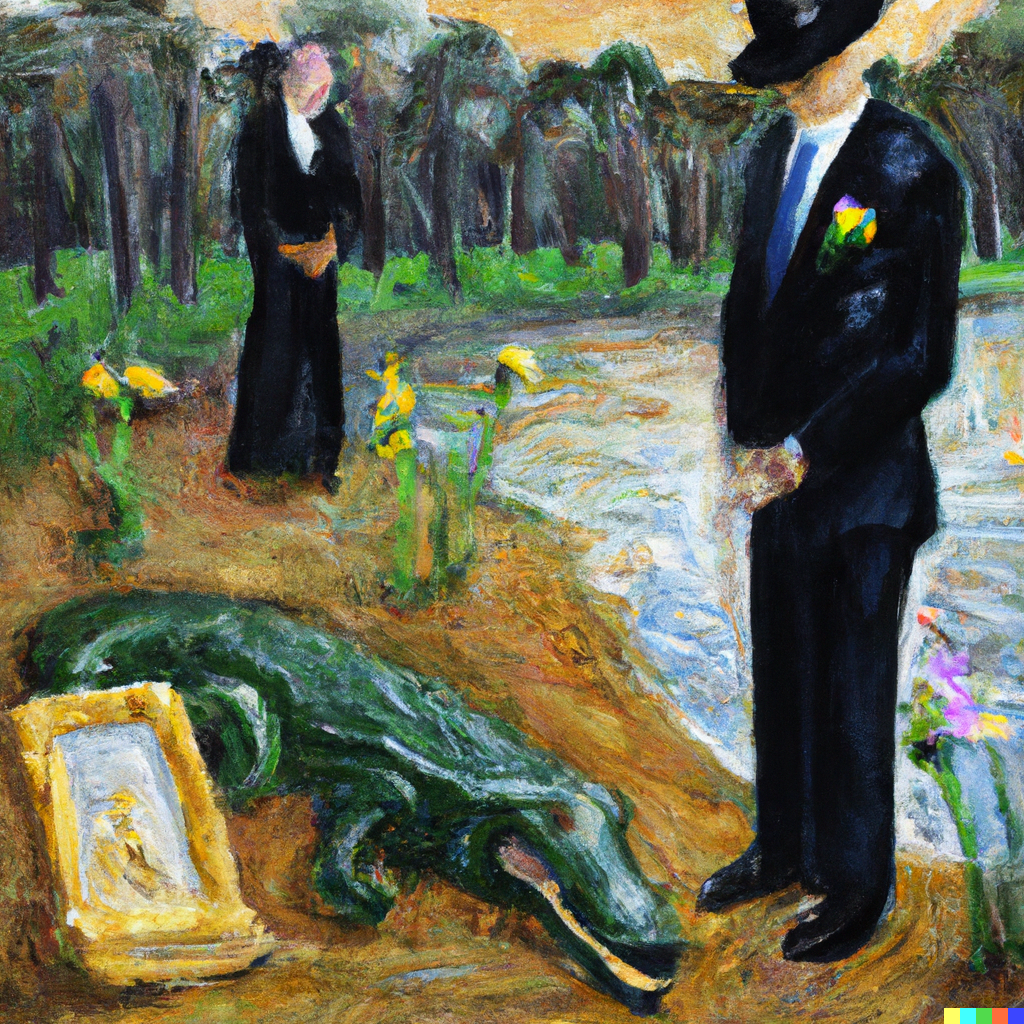
Uncle Bobby’s Funeral
Reluctant family faces the eccentricities of Uncle Bobby's funeral in swampy Chipley.

